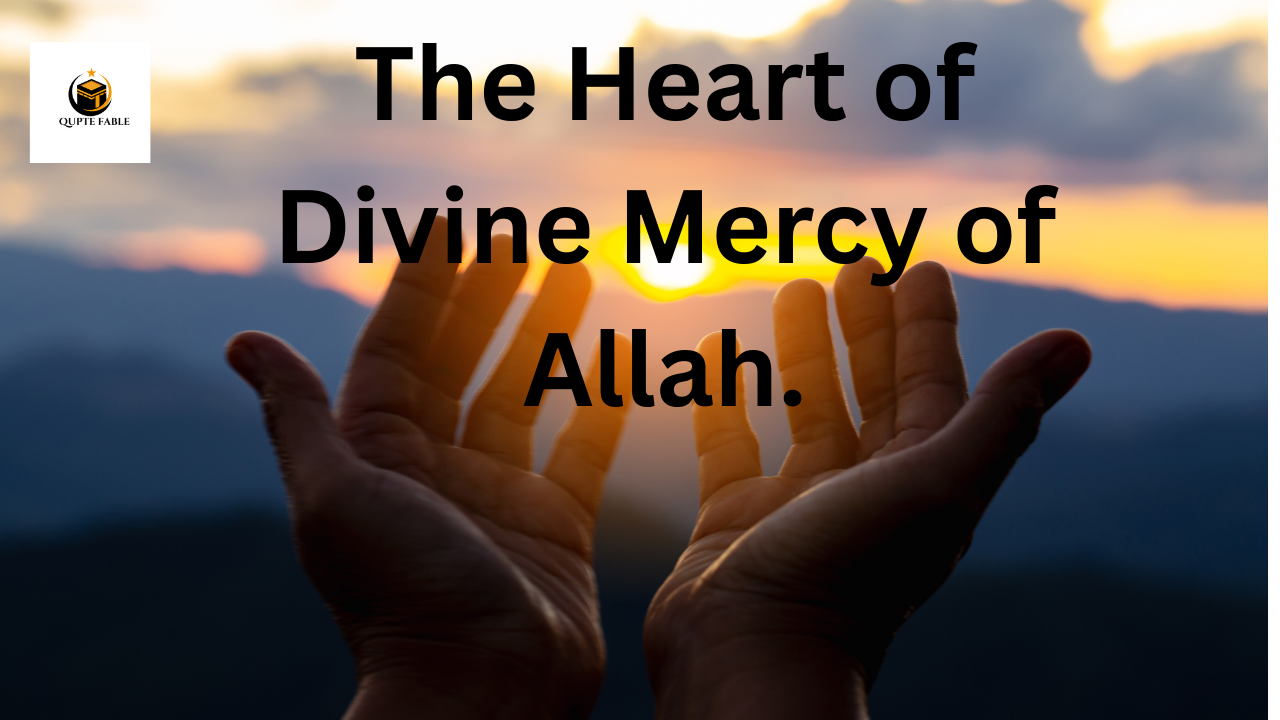The idea of Allah’s mercy is the most important, lively, and all-encompassing thread in the vast and profound tapestry of Islamic theology. It is the fundamental quality from which all creation originated, the guiding principle that oversees all moments of life, and the final hope that calls each soul back to its Creator. Understanding Islam means realising the importance of Divine Mercy, which is the cornerstone of the relationship between the Divine and the mortal, not just a token forgiveness for a chosen few. This article offers a thorough analysis of how to seek out, recognise, and be changed by this boundless compassion by delving into the core of this mercy through His Names, His Words, the teachings of His Prophet, and the innumerable signs that surround us.

The Heart of Divine Mercy
- Allah’s mercy is not a passive feeling; it is an active, creating force that brought the universe into beautiful, intricate existence.
- Divine mercy is the ocean, and all creation is but a drop within it, sustained by its endless, profound, and all-encompassing depth.
- Before any of our deeds are weighed, the mercy of Allah precedes, enveloping us in a compassion we have yet to earn.
- His mercy is the divine thread woven through every moment of our lives, seen and unseen, a constant gift of grace.
- To know Allah is to know Ar-Rahman—the Beneficent whose mercy embraces all of creation without a single exception.
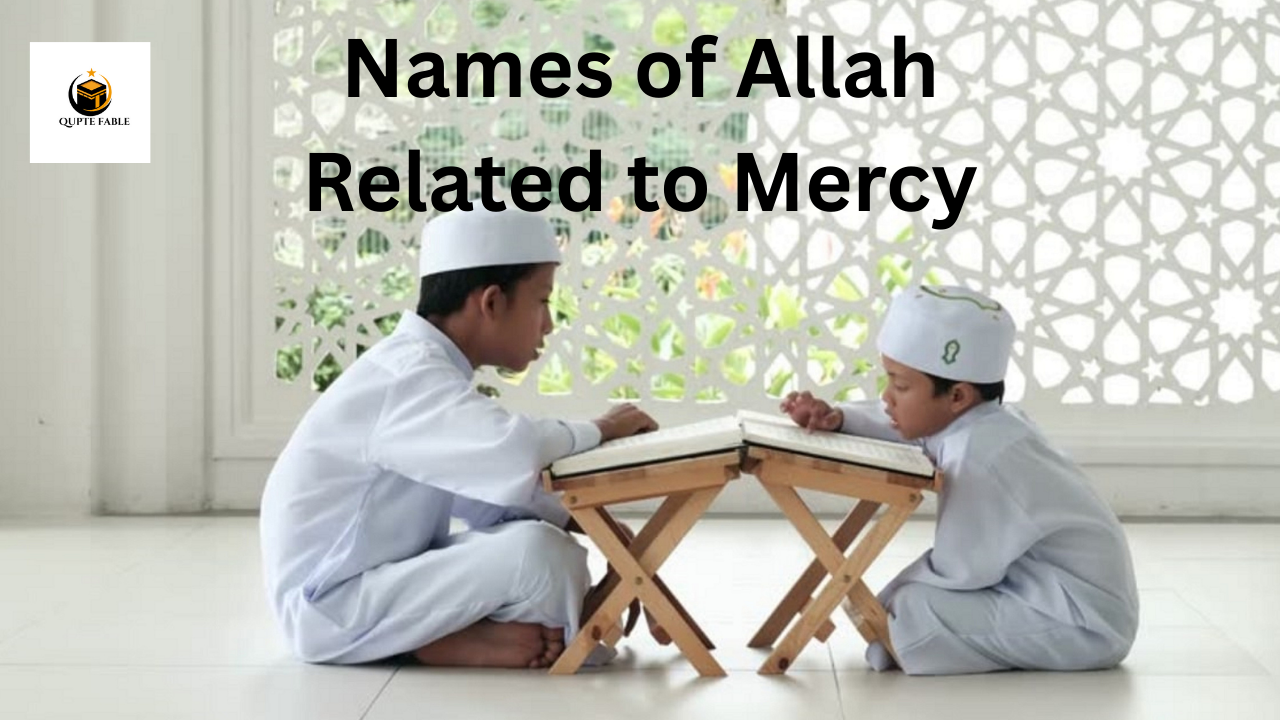
Names of Allah Related to Mercy
Mercy is embodied in Allah, the Supreme Name of God. The Qur’an and Sunnah, on the other hand, provide a distinct window into the vast ocean of Divine Compassion by elaborating on this through particular names.
The Entirely Merciful, or Ar-Rahman: This name alludes to the universal and all-pervading character of Allah’s mercy, which is shown to all creatures without distinction. The mercy is what gives both believers and unbelievers access to the sun, rain, air, and food. It is the innate, fundamental mercy woven throughout life.
The name Ar-Raheem (The Especially Merciful) refers to a particular, energising mercy that is given to people who seek it out via faith and good deeds. It is the kindness of direction, pardon, and, in the end, salvation in the Hereafter. Ar-Rahman is for all of creation, but Ar-Raheem is specifically for believers and those who are thankful.
Al-Ghafoor, which means “The All-Forgiving”, highlights Allah’s ability to conceal and pardon transgressions. He is the one who not only forgives sins but also hides them so that the servant who tries to turn from his ways is not ashamed. He is so forgiving that he can pardon any sin, no matter how serious.
The active name At-Tawwab (The Accepting of Repentance) indicates Allah’s propensity to turn to His servant whenever the servant even tries to do so. It represents a warm, embracing, and affectionate reaction to repentance.
The name Ar-Ra’uf (The Most Kind) lends a delicate and gentle quality to the idea of mercy. It is the mercy of a tender carer who genuinely cares about the subtle comfort and well-being of His servants, easing their suffering with great compassion.
Comprehending these names is a spiritual endeavour rather than a scholarly endeavour. Gratitude for all blessings is fostered by contemplating Ar-Rahman. Thinking about Ar-Raheem encourages action and hope. Knowing Ar-Ra’uf calms a worried heart, and calling upon Al-Ghafoor and At-Tawwab promotes repentance.
Verses in the Quran Concerning Allah’s Mercy
The Qur’an is a book of mercy from the very first verse. Its very revelation is said to be a gift from Allah to humanity. Although there are too many verses on mercy to list them all, a few key verses provide a compelling overview:
“In the name of Allah, the Entirely Merciful, the Especially Merciful” is the opening line. This verse, which appears at the start of all but one chapter, serves as a continual reminder that a Muslim’s actions always start with asking the Merciful for blessings.
“Say, ‘O My servants who have transgressed against themselves [by sinning], do not despair of Allah’s mercy,” is the verse of hope. Yes, all sins are forgiven by Allah. Yes, He is the one who is merciful and forgiving. (Qur’an 39:53) Addressing sinners directly, this verse states unequivocally that no sin is beyond Allah’s forgiveness and forbids hopelessness.
Mercy’s Scope: “And My Mercy encompasses all things.” (Qur’an 7:156) This encapsulates Divine Mercy’s limitless, infinite character. It is neither restricted nor limited.
“And your Lord has decreed upon Himself mercy” is a divine decree. (Qur’an 6:54) Among the most profound verses is this one. Mercy is a decree that Allah made for Himself, a promise that comes from His very nature; it is not a duty that He must fulfil.
Mercy of the Prophet: “And We have not sent you, [O Muhammad], except as a mercy to the worlds.” (Qur’an 21:107) The Prophet Muhammad (ﷺ) was the human embodiment of this divine quality. His character, teachings, and way of life were all tangible examples of Allah’s kindness.

Quranic Verses About Allah’s Mercy
he Qur’an is, from its opening verse, a book of mercy. Its very revelation is described as a mercy from Allah to humankind. The verses on mercy are too numerous to list exhaustively, but a few cornerstone verses paint a powerful picture:
- The Opening: “In the name of Allah, the Entirely Merciful, the Especially Merciful.” This verse, repeated at the beginning of every chapter (except one), is a constant reminder that every act of a Muslim begins by seeking the blessings of the Merciful.
- The Verse of Hope: “Say, ‘O My servants who have transgressed against themselves [by sinning], do not despair of the mercy of Allah. Indeed, Allah forgives all sins. Indeed, it is He who is the Forgiving, the Merciful.'” (Qur’an 39:53) This verse is a direct address to sinners, explicitly forbidding despair and affirming that no sin is beyond the scope of Allah’s forgiveness.
- The Scope of Mercy: “And My Mercy encompasses all things.” (Qur’an 7:156) This is a definitive statement of the boundless, infinite nature of Divine Mercy. It is not limited or constrained.
- A Divine Decree: “And your Lord has decreed upon Himself mercy.” (Qur’an 6:54) This is one of the most profound verses. Mercy is not an obligation upon Allah; it is a decree He placed upon Himself, a promise emanating from His own essence.
- The Prophet as Mercy: “And We have not sent you, [O Muhammad], except as a mercy to the worlds.” (Qur’an 21:107) The embodiment of this divine attribute in human form was the Prophet Muhammad (ﷺ). His life, teachings, and character were a practical manifestation of Allah’s mercy.

Hadith on Allah’s Mercy
Despite the vastness of divine mercy, its particular form of salvation and guidance is not unconditional. You have to look for it in certain ways.
- By means of Tawbah (Sincere Repentance)
The main way to obtain Al-Ghafoor and At-Tawwab’s mercy is through Tawbah. It is much more than simply saying “I’m sorry” or feeling bad. The three main tenets of this process are giving up the sin right away, having sincere regret in one’s heart, and making a firm commitment to never do it again. A fourth pillar is added if the sin involves the restoration of another person’s rights. As long as the death rattle has not reached one’s throat or the sun has not risen from the west, which is a sign of the Day of Judgement, the door of Tawbah remains open. According to a hadith qudsi, Allah runs towards the servant in response to every sincere step taken in His direction. - By means of Du‘āʾ (prayer)
The believer’s weapon and direct route to divine mercy is the du’a. It is the humble recognition of one’s own need and Allah’s boundless supply. “Let each of you ask his Lord for everything he needs, even if it is a strap for his sandal when it breaks,” the Prophet (ﷺ) said. This teaches that Allah will grant any request, no matter how small. Even the response is a form of mercy—sometimes given right away, sometimes avoided as a harm, and sometimes saved for the Hereafter for a greater reward. Making du’a is an act of worship in and of itself. The Prophet Muhammad (ﷺ) lived and taught this reality of divine mercy, explaining it through his words and actions: - Mercy Over Wrath: The Prophet (ﷺ) said: “When Allah created the creation, He wrote in a Book which is with Him above His Throne: ‘Verily, My Mercy prevails over My Wrath.'” (Sahih al-Bukhari)
- A Mother’s Love Surpassed: The Prophet (ﷺ) said, “Allah is more merciful to His servants than a mother is to her child.” (Sahih al-Bukhari) This hadith uses the strongest human analogy for love to illustrate that divine mercy is infinitely greater.
- The One Hundred Parts: “Allah has one hundred parts of mercy. He sent down one part amongst the jinn, humanity, animals, and insects. Through it, they are compassionate and merciful to one another… And He withheld ninety-nine parts for His servants on the Day of Resurrection.” (Sahih Muslim) This indicates that the mercy we witness in this world is merely 1% of the total mercy that exists.
- Allah’s Joy at Repentance: The Prophet (ﷺ) said, “Allah is more pleased with the repentance of His servant than one of you who [finds] his lost camel in a barren desert.” (Sahih al-Bukhari) This vivid imagery conveys God’s active joy and relief when a sinner returns to Him.
- Mercy for the Merciful: “Those who are merciful will be shown mercy by the Most Merciful. Be merciful to those on the earth, and the One above the heavens will have mercy upon you.” (Sunan al-Tirmidhi) This establishes mercy as a reciprocal principle; to receive it, one must embody it
Through Good Deeds
Through Good Deeds
Righteous actions are a means of attracting divine mercy. The Qur’an and Sunnah consistently link faith with good deeds as the basis for receiving mercy. These deeds include the obligatory acts of worship (prayer, charity, fasting) but also extend to every act of kindness: helping others, speaking a good word, showing respect to parents, and even removing a harmful object from the road. Each good deed, no matter how small, is recorded and becomes a cause for Allah’s mercy to descend upon the individual. The Prophet (ﷺ) told the story of a prostitute who was forgiven because she gave water to a thirsty dog, illustrating that mercy can find its way to a person through a single act of compassion.
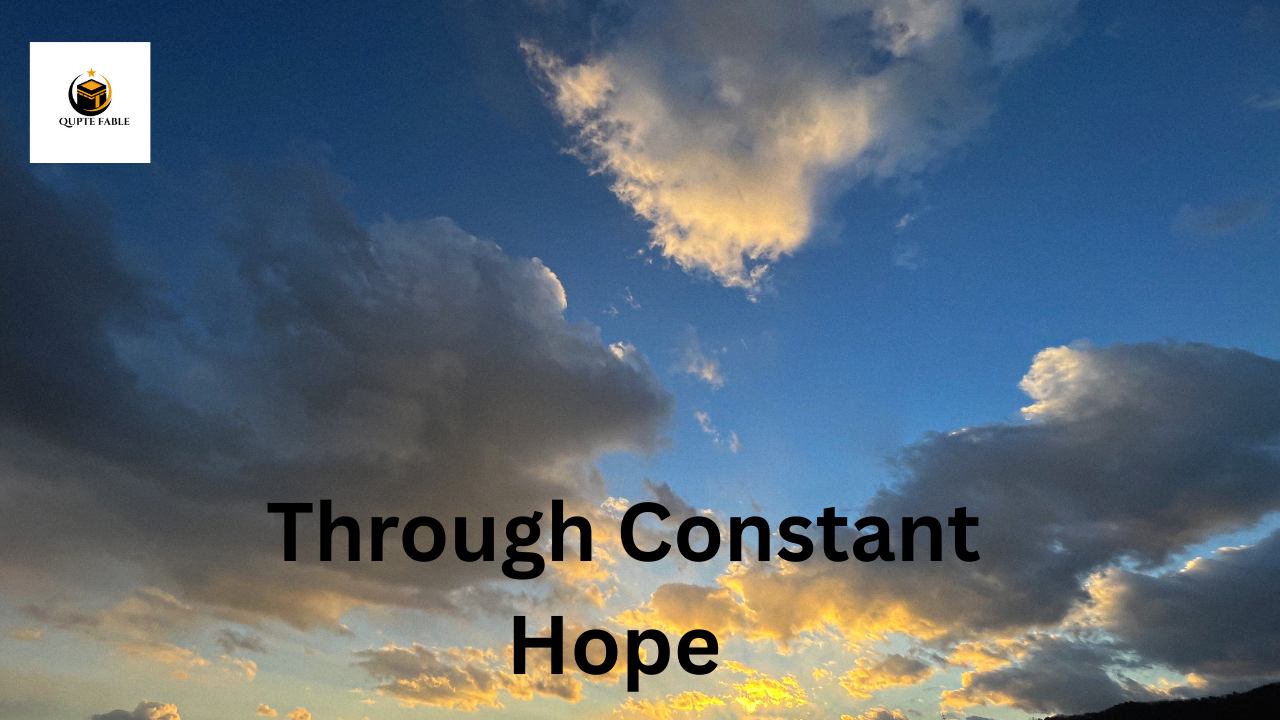
Through Constant Hope
A heart devoid of hope (raja’) in Allah’s mercy is a heart in spiritual peril. Despair is, in fact, considered a major sin because it implies that Allah’s mercy is limited or finite. The believer is commanded to maintain a balance between fear of Allah’s punishment and hope for His mercy. This hope is not passive wishful thinking; it is an active, optimistic state that drives one towards repentance and obedience, firm in the belief that Allah’s mercy will accept and magnify their efforts. It is the spiritual state that allows one to always get back up after a fall, trusting in the promise of forgiveness.
Daily Signs of Allah’s Mercy
Allah’s mercy is not an abstract concept; it is tangible and present in our daily lives for those who reflect.
- Waking Up Each Morning: The simple act of regaining consciousness each day is a profound mercy. It is a renewed lease on life, a second chance to rectify past wrongs, to worship, to do good, and to seek forgiveness. The soul was taken in sleep and returned by Allah’s will—a daily resurrection pointing to the ultimate one.
- Protection From What You Don’t See: Every day, we are shielded from countless unseen dangers—physical accidents, illnesses, spiritual calamities, and temptations. Angels are assigned to protect us by the command of the Merciful. This unseen protection is a mercy so immense we are largely unaware of its scope.
- Duas That Are Answered in the Best Time: We make supplications and sometimes feel they go unanswered. A profound mercy is that Allah, in His infinite wisdom, answers every prayer from a believer in one of three ways: He grants it immediately, He delays it for a better time, or He substitutes it with something better for them in the Hereafter. The “unanswered” prayer is often the greatest mercy.
- Being Forgiven Even When You Forgot to Ask: The mercy of Allah is so encompassing that it covers minor sins that a person may commit without realizing it or without a chance to repent from specifically. Furthermore, the very feeling of guilt that leads one back to Allah is itself a mercy and a form of divine guidance.
- Guidance After Misguidance: Perhaps one of the greatest mercies is when Allah guides a soul back to the straight path after a period of error, doubt, or sin. This guidance is not earned; it is a pure gift from Ar-Raheem. It is the light that illuminates the heart after darkness, a feeling of peace and rightness that is unmistakably divine.
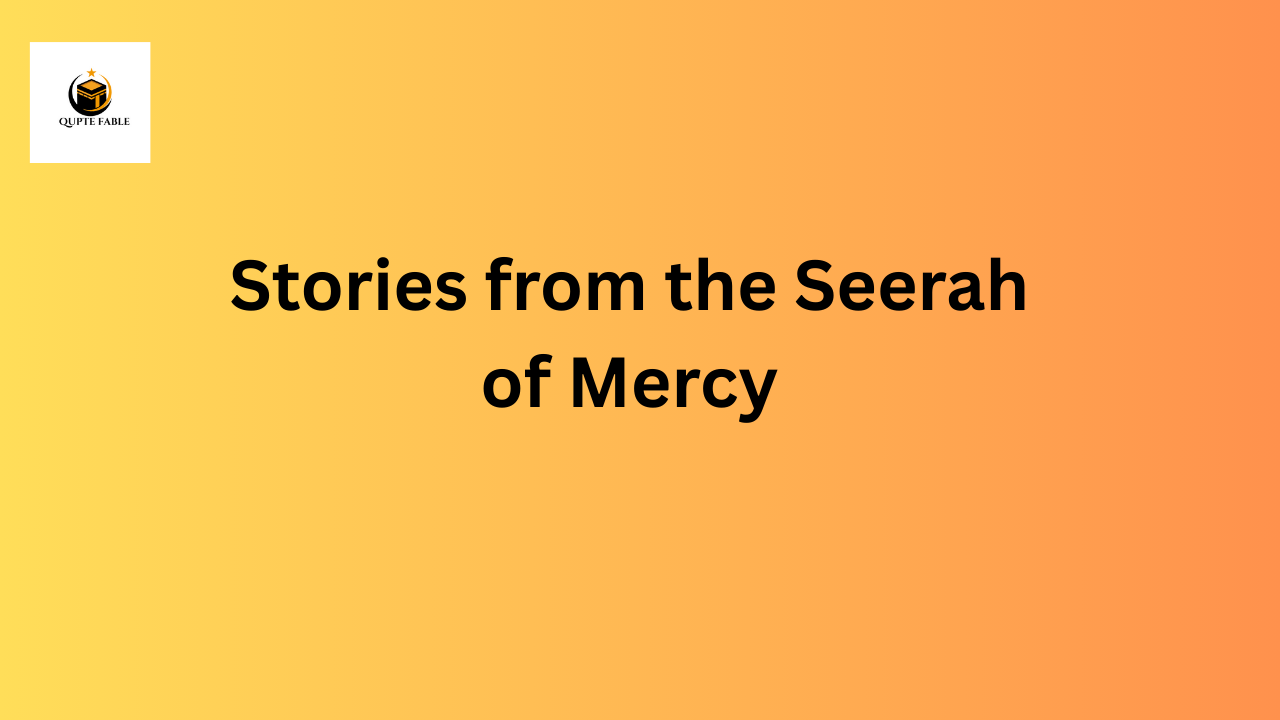
Stories from the Seerah of Mercy
The life of the Prophet Muhammad (ﷺ) is the ultimate practical manual of mercy.
- The Forgiveness of Ta’if: After traveling to the city of Ta’if to preach Islam, the Prophet (ﷺ) was met with extreme hostility. He was stoned by the townspeople until his shoes were filled with blood. In this moment of immense personal pain and rejection, the angel of the mountains offered to crush the city between two mountains. The Prophet’s (ﷺ) response was legendary: “No. For I hope that Allah will bring from their descendants people who will worship Allah alone without associating any partners with Him.” His mercy sought their future guidance, not their immediate destruction.
- Mercy to the Hypocrites: In Medina, a group of hypocrites (munafiqun) openly professed faith but secretly worked to undermine the Muslim community. They spread slander, created dissent, and even plotted against the Prophet (ﷺ). Despite knowing their identities, the Prophet (ﷺ) never executed them. He dealt with them with patience and forbearance, hoping they might rectify their hearts, demonstrating mercy even to those filled with malice.
- His Mercy During War: Islam has strict rules of engagement that are rooted in mercy. The Prophet (ﷺ) strictly prohibited the killing of women, children, the elderly, monks in their monasteries, and even damaging trees and crops. This was a revolutionary code of conduct in 7th-century Arabia, where tribal warfare was brutal and limitless.
- Mercy to Animals: The Prophet’s mercy extended to all creatures. He condemned the practice of branding animals on their faces, spoke against overburdening beasts of burden, and told the story of a man who was forgiven for giving water to a thirsty dog. He once saw a camel that was little more than skin and bones. He said, “Fear Allah regarding these animals who cannot speak. Ride them while they are in good health, and eat them while they are in good health.”
Duas for Mercy
Invoking Allah’s mercy through supplication is a Sunnah of the Prophet.
- A General Prayer for Mercy: “O Allah, have mercy upon me through Your mercy, and grant me well-being from You, and provide for me from your bounty, and bless me in what You have given me.”
- Seeking Mercy for Parents: “My Lord, have mercy upon them as they brought me up when I was small.” (Qur’an 17:24)
- A Comprehensive Supplication: “O Allah, I ask You for Your mercy that guides my heart, fixes my affairs, gathers my scattered matters, raises my status, purifies my deeds, inspires me with guidance, protects me from evil, and rectifies for me my religion and worldly affairs.”
- Seeking Forgiveness and Mercy: “Our Lord, we have wronged ourselves. If You do not forgive us and have mercy upon us, we will surely be among the losers.” (Qur’an 7:23)
- The Master Prayer for Forgiveness: “O Allah, You are my Lord. There is no god worthy of worship except You. You created me and I am Your servant. I am adhering to Your covenant and promise as much as I am able. I seek refuge in You from the evil of what I have done. I acknowledge Your favor upon me and I acknowledge my sin. So forgive me, for indeed, no one forgives sins except You.” (Sayyid al-Istighfar)
Quotes About Allah’s Mercy
- “Do not let your sins make you shy away from turning to Allah, for the door of repentance is wider than the sky itself.”
- “Allah’s mercy is not a reward for the perfect; it is a refuge for the broken, the humble, and the those who constantly return.”
- “The ocean of Allah’s forgiveness is deeper than the ocean of your sins. Dive into it with sincere repentance.”
- “When you feel distant from Allah, know that it is not He who moved. Turn around, and you will find His mercy waiting for you.”
- “Hope in Allah’s mercy is the ship that sails through the storm of your mistakes, carrying you safely to the shore of His forgiveness.”
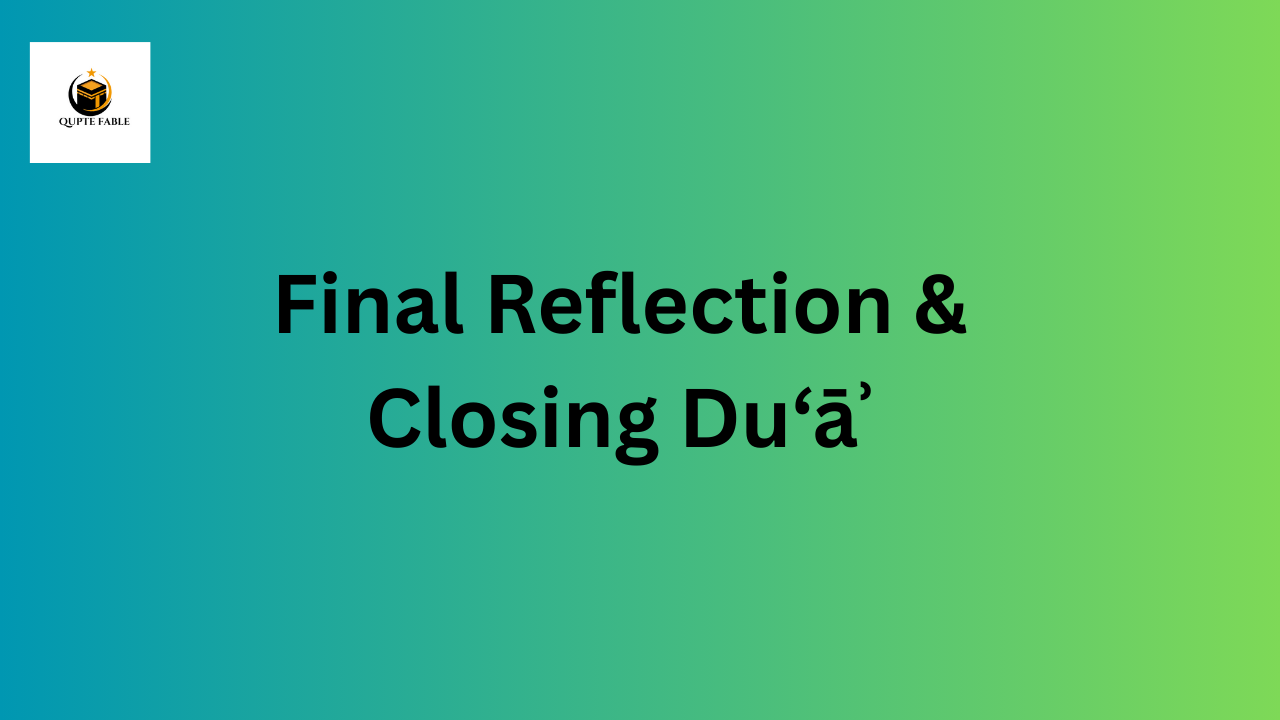
Final Reflection & Closing Du‘āʾ
Reflecting on Allah’s mercy is a lifelong journey that should fill the heart with gratitude, hope, and a profound sense of peace. It should also inspire us to become channels of this mercy in the world, showing compassion, forgiveness, and kindness to all of Allah’s creation. In a world often marked by harshness and judgment, being a manifestation of divine mercy is one of the greatest callings of a believer.
Final Du‘āʾ:
“O Allah, we ask You by every Name that belongs to You, with which You have named Yourself, or which You revealed in Your Book, or which You taught to any of Your creation, or which You have kept with You in the knowledge of the unseen, to make the Qur’an the spring of our hearts, the light of our chests, the remover of our sadness, and the pacifier of our worries.
O Allah, cover our weaknesses, calm our fears, forgive our sins, and have mercy upon us. You are the Most Merciful of those who show mercy. Grant us a mercy from Yourself that will shield us from the need for the mercy of anyone else. Ameen.”
conclusion:
he concept of Divine Mercy is the very bedrock of Islam, representing an infinite, pre-existing, and all-encompassing compassion that is the source of all creation, the sustainer of every moment, and the ultimate hope for every soul. It is a proactive force, sought through sincere repentance, supplication, and righteous deeds, and is made manifest in countless daily blessings, the teachings of the Qur’an, and the exemplary life of the Prophet Muhammad (ﷺ). Understanding this profound mercy fosters a balanced heart, filled with gratitude for blessings received, hope for forgiveness, and a compelling duty to embody this very compassion in all interactions with the world.
please read the related post:Islamic duas and wishes for safe travel.

